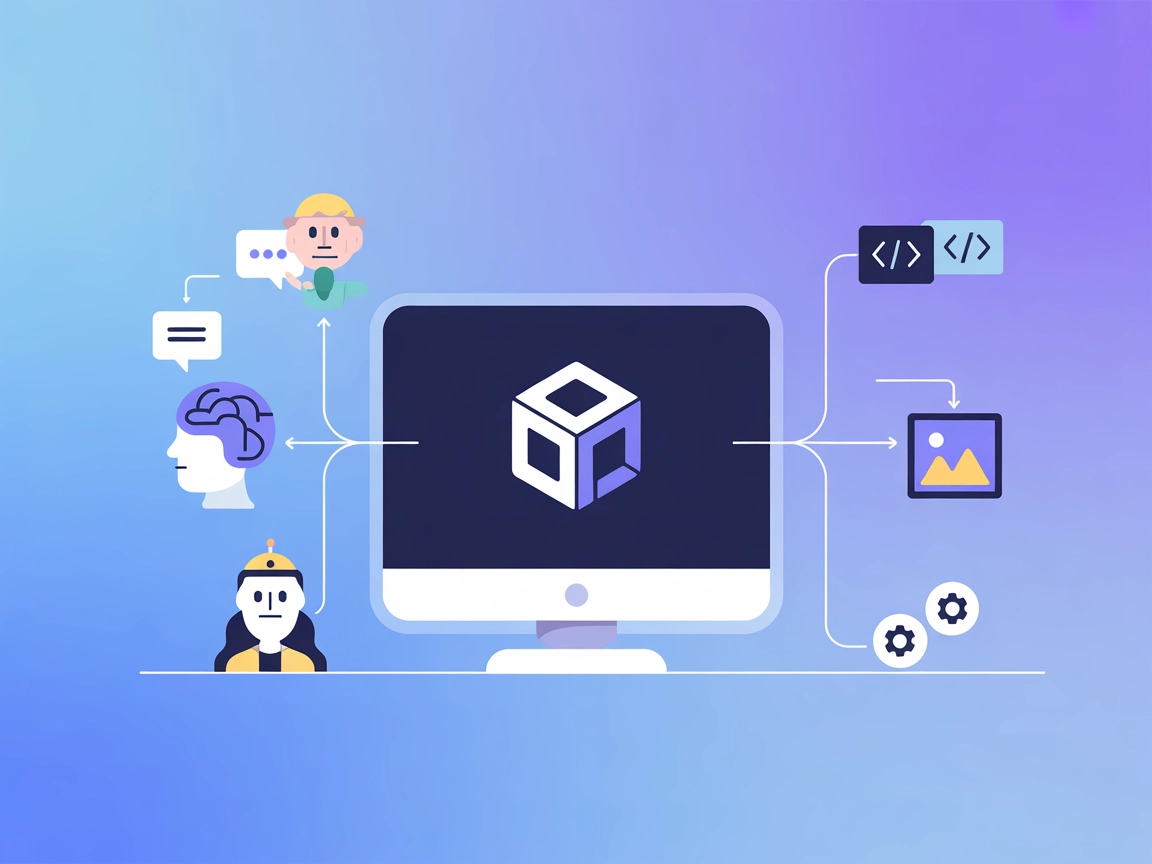
Unity MCP Server Integration
The Unity MCP Server bridges the Unity Editor with AI model clients such as Claude Desktop, Windsurf, and Cursor, enabling automation, intelligent assistance, a...

Bridge your AI workflows and Unity game engine with UnityMCPIntegration for automated testing, procedural content, and dynamic scene control.
FlowHunt provides an additional security layer between your internal systems and AI tools, giving you granular control over which tools are accessible from your MCP servers. MCP servers hosted in our infrastructure can be seamlessly integrated with FlowHunt's chatbot as well as popular AI platforms like ChatGPT, Claude, and various AI editors.
UnityMCPIntegration is a Model Context Protocol (MCP) server that enables AI assistants and agents to directly interact with and control the Unity game engine. By bridging Unity with external AI workflows, this integration empowers developers to automate and orchestrate in-game actions, manipulate scenes, or manage Unity assets programmatically. The server acts as a conduit, allowing AI models to send commands, receive updates, and manipulate Unity environments in real time. This fosters advanced development and testing workflows, such as automated game testing, procedural content generation, or dynamic scenario creation, all powered by AI. UnityMCPIntegration enhances productivity by enabling sophisticated agentic behaviors within Unity, making it a valuable tool for game developers, researchers, and anyone leveraging AI-driven Unity applications.
No prompt templates were found in the available repository files or documentation.
No explicit MCP resources were listed in the available repository files or README.
No specific tools were documented in the available files. The server.py or its equivalent implementation file was not present or not accessible in the explored repository structure.
windsurf.config.json).{
"mcpServers": {
"unity-mcp": {
"command": "npx",
"args": ["@quazaai/unitymcpintegration@latest"]
}
}
}
claude.config.json).mcpServers field.{
"mcpServers": {
"unity-mcp": {
"command": "npx",
"args": ["@quazaai/unitymcpintegration@latest"]
}
}
}
{
"mcpServers": {
"unity-mcp": {
"command": "npx",
"args": ["@quazaai/unitymcpintegration@latest"]
}
}
}
{
"mcpServers": {
"unity-mcp": {
"command": "npx",
"args": ["@quazaai/unitymcpintegration@latest"]
}
}
}
To secure API keys or sensitive credentials, use environment variables and reference them in your configuration as follows:
{
"mcpServers": {
"unity-mcp": {
"command": "npx",
"args": ["@quazaai/unitymcpintegration@latest"],
"env": {
"UNITY_API_KEY": "${UNITY_API_KEY}"
},
"inputs": {
"unityProject": "/path/to/your/project"
}
}
}
}
Using MCP in FlowHunt
To integrate MCP servers into your FlowHunt workflow, start by adding the MCP component to your flow and connecting it to your AI agent:

Click on the MCP component to open the configuration panel. In the system MCP configuration section, insert your MCP server details using this JSON format:
{
"unity-mcp": {
"transport": "streamable_http",
"url": "https://yourmcpserver.example/pathtothemcp/url"
}
}
Once configured, the AI agent is now able to use this MCP as a tool with access to all its functions and capabilities. Remember to change “unity-mcp” to whatever the actual name of your MCP server is and replace the URL with your own MCP server URL.
| Section | Availability | Details/Notes |
|---|---|---|
| Overview | ✅ | |
| List of Prompts | ⛔ | |
| List of Resources | ⛔ | |
| List of Tools | ⛔ | |
| Securing API Keys | ✅ | Example provided |
| Sampling Support (less important in evaluation) | ⛔ |
UnityMCPIntegration provides a powerful bridge between AI workflows and the Unity engine, but the lack of explicit prompts, resources, and tool documentation in the repository limits its immediate utility for developers seeking out-of-the-box workflows. Its setup is straightforward, and support for secure API key management is a plus. However, more detailed documentation and examples would greatly enhance its usability.
Rating: 5/10
| Has a LICENSE | ✅ |
|---|---|
| Has at least one tool | ⛔ |
| Number of Forks | 13 |
| Number of Stars | 67 |
UnityMCPIntegration is an MCP server that connects AI agents and workflows with the Unity game engine, enabling real-time automation, scene control, and asset management from external AI systems.
Key use cases include automated game testing, procedural content generation, AI-driven gameplay, simulation and training, and real-time scene manipulation within Unity environments.
Install Node.js and Unity. Add the provided MCP server configuration to your chosen platform (Windsurf, Claude, Cursor, or Cline) and restart the application. Secure credentials using environment variables as needed.
Add the MCP component to your FlowHunt flow, configure it with your UnityMCPIntegration server details, and connect it to your AI agent. This enables your agent to access Unity’s functionalities as tools within your workflow.
Yes. You can secure API keys and sensitive credentials using environment variables referenced in your configuration.
No explicit prompt templates or tool documentation are available in the current repository. The integration focuses on enabling AI-to-Unity communication and control.
While powerful for connecting AI and Unity, the integration lacks detailed documentation, prompt templates, and built-in resource/tool definitions, which may limit immediate usability for some developers.
Unlock the power of AI-driven automation and control within Unity. Set up UnityMCPIntegration to streamline development, testing, and creative workflows.

The Unity MCP Server bridges the Unity Editor with AI model clients such as Claude Desktop, Windsurf, and Cursor, enabling automation, intelligent assistance, a...

The Unity Catalog MCP Server enables AI assistants and developers to programmatically manage, discover, and manipulate Unity Catalog functions via the Model Con...

The Databricks MCP Server connects AI assistants to Databricks environments, enabling autonomous exploration, understanding, and interaction with Unity Catalog ...
Cookie Consent
We use cookies to enhance your browsing experience and analyze our traffic. See our privacy policy.